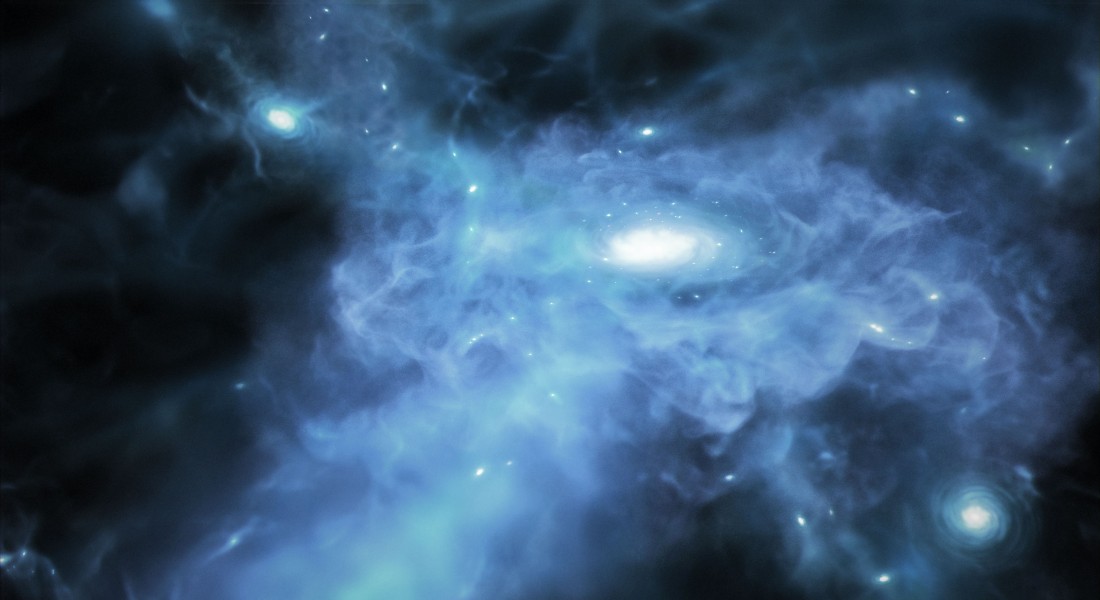23 May 2024. Birth of universe’s earliest galaxies observed for first time
----
For the first time in the history of astronomy, researchers at the Niels Bohr Institute have witnessed the birth of three of the universe's absolute earliest galaxies, somewhere between 13.3 and 13.4 billion years ago. Illustration: NASA
#
The discovery was made using the James Webb Space Telescope, which brought these first 'live observations' of formative galaxies down to us here on Earth.
#
Through the telescope, researchers were able to see signals from large amounts of gas that accumulate and accrete onto a mini-galaxy in the process of being built. While this is how galaxies are formed according to theories and computer simulations, it had never actually been witnessed.
#
"One of the most fundamental questions that we humans have always asked is: 'Where do we come from?'. Here, we piece together a bit more of the answer by shedding light on the moment that some of the universe’s first structures were created. It is a process that we’ll investigate further, until hopefully, we are able to fit even more pieces of the puzzle together," concludes Associate Professor Gabriel Brammer.
--------

 nbi.ku.dk
nbi.ku.dk
----
For the first time in the history of astronomy, researchers at the Niels Bohr Institute have witnessed the birth of three of the universe's absolute earliest galaxies, somewhere between 13.3 and 13.4 billion years ago. Illustration: NASA
#
The discovery was made using the James Webb Space Telescope, which brought these first 'live observations' of formative galaxies down to us here on Earth.
#
Through the telescope, researchers were able to see signals from large amounts of gas that accumulate and accrete onto a mini-galaxy in the process of being built. While this is how galaxies are formed according to theories and computer simulations, it had never actually been witnessed.
#
"One of the most fundamental questions that we humans have always asked is: 'Where do we come from?'. Here, we piece together a bit more of the answer by shedding light on the moment that some of the universe’s first structures were created. It is a process that we’ll investigate further, until hopefully, we are able to fit even more pieces of the puzzle together," concludes Associate Professor Gabriel Brammer.
--------

Birth of universe’s earliest galaxies observed for first time
Using the James Webb Space Telescope, University of Copenhagen researchers have become the first to see the formation of three of the earliest galaxies in the universe, more than 13 billion years ago. The sensational discovery contributes important knowledge about the universe and is now...
